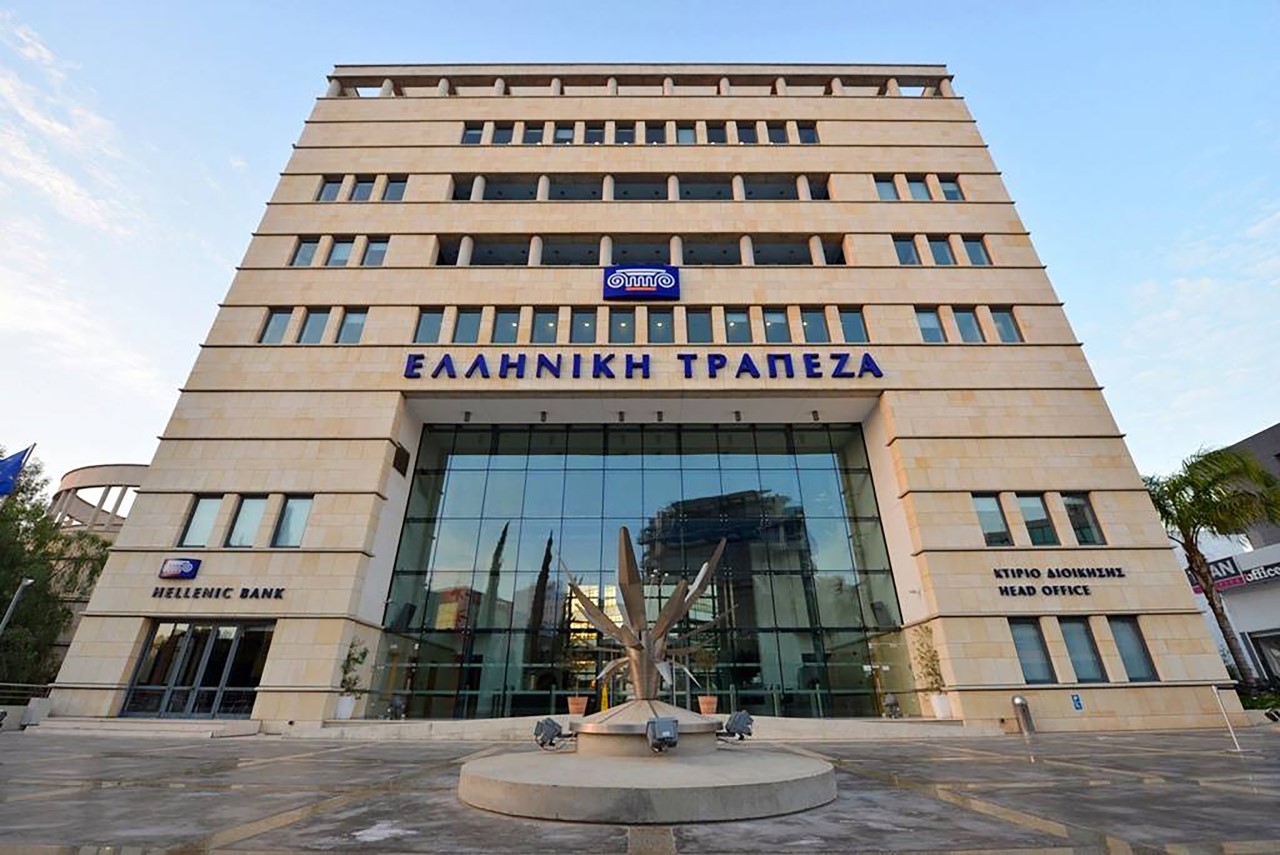Hellenic Bank announced on Wednesday that it posted a profit of €160.2 million during the first half of 2023, a result that underscores the resilience of its business model amidst a challenging operational environment.
The bank noted that its profitability was primarily driven by increased income from Central Bank placements and debt securities.
Maintaining a solid capital position, the bank’s Common Equity Tier 1 (CET1) ratio stands at an impressive 20.8 per cent, accompanied by a Capital Adequacy Ratio of 26.5 per cent, both comfortably surpassing the minimum regulatory requirements.
Moreover, significant efforts to reduce risk have resulted in a Non-Performing Exposures (NPE) ratio of 8.9 per cent (or 3.3 per cent when excluding NPEs covered by the APS agreement).
Hellenic Bank also touched on its commitment to addressing structural challenges and transformation remains on track, with a strong focus on digitalisation and efficiency enhancements.
In addition, a surge in new lending activities took place during the first half of 2023, with new lending amounting to €647 million, marking a substantial 16 per cent year-on-year increase.
This growth is especially notable considering the ongoing challenges within the economic and operational landscape.

Hellenic Bank Interim CEO Antonis Rouvas during the presentation of the results
Commenting on the group’s financial results for the six-month period ending June 30 2023, Antonis Rouvas, the group’s Interim Chief Executive Officer, stated that Hellenic Bank’s performance for the first half of 2023 was solid.
“Profit after tax totalled €160 million, mainly driven by higher interest income from Central Bank placements and debt securities as interest rates rise, as well as lower expenses,” Rouvas stated.
“This performance demonstrates the resilience of our business model and our efforts to continue to unlock value,” he added.
Furthermore, Rouvas explained that following the successful Voluntary Early Exit Scheme (VEES) of 2022, the adjusted cost-to-income ratio for the first half of 2023 was 38 per cent, which is in line with the bank’s medium-term targets.
“However, the economic and operating environment remains challenging, with rising interest rates and inflation above the long-term average, as well as the ongoing Russia-Ukraine crisis, which could affect the bank’s financial performance in the coming quarters,” Rouvas said.
“During the first half of 2023 we successfully issued €200 million Tier 2 Subordinated Notes under our EMTN Programme,” Rouvas continued, noting that “the total order book was almost 4.5 times oversubscribed re-affirming the market’s confidence for the bank”. Nevertheless, Rouvas said that the bank’s funding from capital markets remains costly, reflecting the bank’s current non-investment grade credit rating.
“By demonstrating sustainable financial performance and by operating in an environment that will remain supportive, we will work towards obtaining an investment grade credit rating to further facilitate the Bank’s access to the capital markets at more competitive rates,” he said.
Among the key highlights of the report, the bank recorded a substantial net interest income of €235.4 million for the first half of 2023, reflecting an impressive 77 per cent year-on-year increase. This growth can be attributed to favourable interest rates and the bank’s balance sheet structure, notably influenced by Central Bank placements.
In addition, the bank has effectively managed its cost-to-income ratio, maintaining it at a commendable 38 per cent.
This achievement was fueled by higher net interest income and reduced staff costs, attributed to the successful implementation of the Voluntary Early Exit Scheme in December 2022.
Hellenic Bank’s commitment to responsible lending is underscored by the fact that 99.6 per cent of new lending exposures since 2018 are performing as expected.

Hellenic Bank Interim CEO Antonis Rouvas
Rouvas also touched on the completion of Project Starlight, which took place in March 2023, and helped to significantly de-risk the bank’s balance sheet and reduce the non-performing exposures ratio, excluding the non-performing exposures under the Asset Protection Scheme, to 3.3 per cent on June 30 2023.
“Despite the shift of the problem loans outside the banking sector, the level of problem loans in Cyprus remains one of the highest in Europe,” Rouvas said.
“Therefore, we consider it imperative that the country has a stable and functional foreclosure framework for addressing strategic defaulters, to enhance the country’s appeal for attracting foreign direct investments and to facilitate the access of domestic debt issuers to the international capital markets,” he added.
He further noted that “we reiterate our commitment to support our vulnerable customers and to work closely with the authorities for any proposed measures that will address the long-standing issue of NPEs”.
Hellenic Bank also continues to enjoy ample liquidity, boasting a Liquidity Coverage Ratio (LCR) of 499 per cent. Notably, the bank holds €6 billion placed at the European Central Bank, excluding the Targeted Long-Term Refinancing Operations (TLTRO) of €2.3 billion.
Meeting regulatory requirements remains a cornerstone of the bank’s operations, with the Minimum Requirements for Own Funds and Eligible Liabilities (MREL) Total Loss Absorbing Capacity (TREA) position exceeding expectations at 29.1 per cent, well above the final MREL requirement set for December 2025.
Rouvas also spoke about the bank’s ESG Impact Report for 2022, which was released in June and is based on the Hellenic Bank’s new ESG Strategy.
“It reiterates our commitment to lead a sustainable transition of the economy and sets ambitious goals to become a climate-neutral Bank, increase our green lending (€107 million during the first half of 2023), improve our ESG rating and support customers and investors in their green transition,” he said.
“I am very thankful and proud of my colleagues who remain focused on supporting customers and executing our transformation plan,” Rouvas added.
“We will continue working towards creating value for our stakeholders by continuing to finance the growth of the Cyprus economy,” he concluded.







Click here to change your cookie preferences